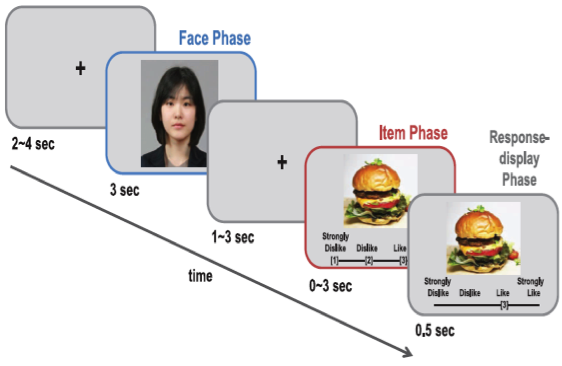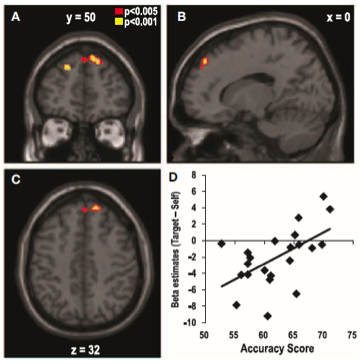In daily interactions, we often estimate another person’s preferences accurately even on the basis of minimal information about the person. In this study, participants estimated others’ preferences above chance level, based only on a brief exposure to their appearances.
fMRI data showed that higher accuracy in preference estimation was associated with greater activity in the dorsomedial prefrontal cortex (DMPFC) when participants were guessing the targets’ preferences relative to thinking about their own preferences. On the contrary, the tendency to refer to self-preferences when estimating others’ preference was related to greater activity in the ventromedial prefrontal cortex. (Kang et al., Frontiers in Human Neuroscience, 2013)


